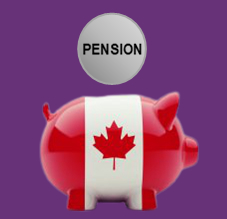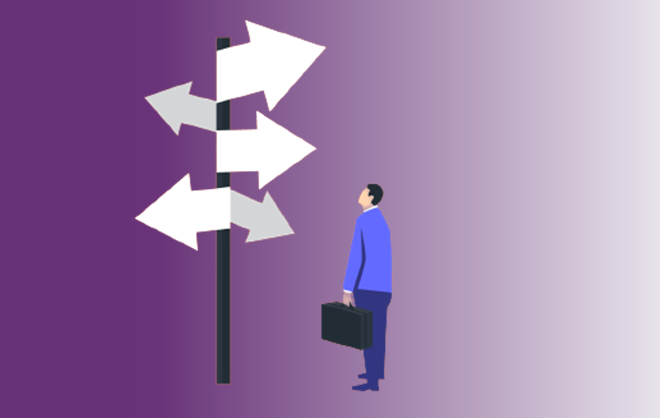 Did you know that you can apply for your CPP pension before you retire? Of course, your next question is “why would I collect CPP before I retire”?
Did you know that you can apply for your CPP pension before you retire? Of course, your next question is “why would I collect CPP before I retire”?
CPP has made many changes over the years including the ability to collect CPP at the age of 60 without the requirement to STOP working. It does not start automatically. You must apply for it.
AGE 60
Although collecting CPP early would mean a reduction of .6% per month, with a maximum reduction of 36%, of your entitled pension amount, you would be receiving 60 extra payments that you wouldn’t otherwise receive if you waited until age 65.
i.e. If you were eligible for a $650 monthly payment, this would be reduced to $416 per month if you were to start receiving payments at age 60. This may seem like a substantial reduction, however, receiving an additional 60 payments (12 per year over 5 years) totals $24,960.
Remember, if you choose to take your pension early, the adjustment and reduction is permanent. As well, if you stop working after the age of 60 but delay receiving your pension until the age of 65, your pension amount will decrease. Why? Because the period you are expected to pay into the CPP continues until you start receiving your retirement pension so not paying into it for five years will impact your total entitled pension and decrease the amount.
AGE 65
If you start your CPP retirement pension at age 65, you will receive the pension amount you are eligible to receive.
AGE 70
If you start your CPP retirement pension after age 65, the CPP increases your pension amount by .7% for each month delayed until age 70, to a maximum of 42% more.
POST-RETIREMENT BENEFIT
In addition to the above, there is a lifetime benefit (Post-Retirement Benefit or PRB) for people who work in Canada (outside Quebec) and who receive a retirement pension for the CPP or QPP. This is a separate benefit that gradually increases your CPP retirement income if you continue working and paying into CPP while also receiving CPP pension income.
 Prior to this implementation, if you were between 60 to 70 years of age and provided proof to your employer that you were receiving CPP or QPP, employers stopped deducting CPP contributions from your pensionable earnings. Under the latest rules that have been put in place to support the PRB, you will continue to be required to make CPP contributions which will go towards the PRB if you are between 60 to 65 years old and work while receiving your CPP retirement pension. In this situation, if you are also self-employed, you will be required to make both employer and employee contributions.
Prior to this implementation, if you were between 60 to 70 years of age and provided proof to your employer that you were receiving CPP or QPP, employers stopped deducting CPP contributions from your pensionable earnings. Under the latest rules that have been put in place to support the PRB, you will continue to be required to make CPP contributions which will go towards the PRB if you are between 60 to 65 years old and work while receiving your CPP retirement pension. In this situation, if you are also self-employed, you will be required to make both employer and employee contributions.
However, if you are at least 65 years of age, but under 70, and are employed, self-employed, or a combination of both, you are eligible to elect to stop paying CPP contributions. If you choose to continue paying the contributions, your employer will have to pay their portion, or if you are self-employed, you will be required to pay both the employer and employee portions of the contribution.
CONSIDERATIONS FOR COLLECTING EARLY
Now, all of you know that we are not financial planners, but we think it’s important for everyone to know how to make the most of their money!!
One of the things we think people don’t think about is the best way to collect your CPP pension.
 There are several points to consider before deciding if this is right for you.
There are several points to consider before deciding if this is right for you.
Do you need the extra cash flow? In this current economy, you may need additional cash to pay for everyday basic costs or pay down debt before you are fully enjoying retirement.
What tax bracket are you in? If you are in a higher tax bracket, receiving the full CPP pension amount you are entitled to at age 65 might cause you to exceed the income threshold set for that year and you may be required to repay a portion or all your Old Age Security Pension (OAS pension). However, in this case, you want to ensure that the extra tax you pay by taking CPP early is not greater than the amount of your OAS pension that you will have to pay back. Sometimes there are tax planning options like putting your CPP collected into an RRSP so there is no immediate tax consequence.
What is your lifestyle? Most people tend to have a busier lifestyle in the early years of retirement, settling into more sedentary day-to-day living as we age. With the start of or increased frequency of hobbies such as golfing, antiquing or travelling, an increase in cash flow will come in handy.
What is your family health history? If your family has a history of shortened lifespan or you have an illness that may shorten your life, taking CPP early might make sense. If you estimate living only into your early 70s, then it is likely a better financial decision to begin the payments early. For 2020, Statistics Canada showed that the average life expectancy in Canada is 80 years for males and 84 years for females. Keep in mind that if you pass before your spouse, they will not receive the full CPP you are entitled to either.
Do you have investments? You may not need the additional cash flow but investing the extra dollars in something that will produce regular dividends or interest can make up for or exceed the reduction of payments.
Have you ever wanted to work less? Many people go into “semi-retirement” before the age of 65. If you have thought about it and couldn’t afford the reduction in pay, you could consider taking your CPP early. Since you are not required to stop working for collecting CPP, the CPP payments can supplement your reduced income and allow you to decrease the hours you work and give you more free time to enjoy what matters most to you.
Everyone’s financial situation is different and the amount of cash flow an individual needs to live comfortably varies. If you think the additional income of receiving CPP early can benefit you, then you should consult a financial planner and your Professional Accountant to help make that decision. For more information about your personal CPP pension, contact Service Canada to get an estimate of what you can expect to receive.
***This blog is for information only and not to be used as tax advice or planning without first seeking professional advice. Information is also subject to change without notice.
